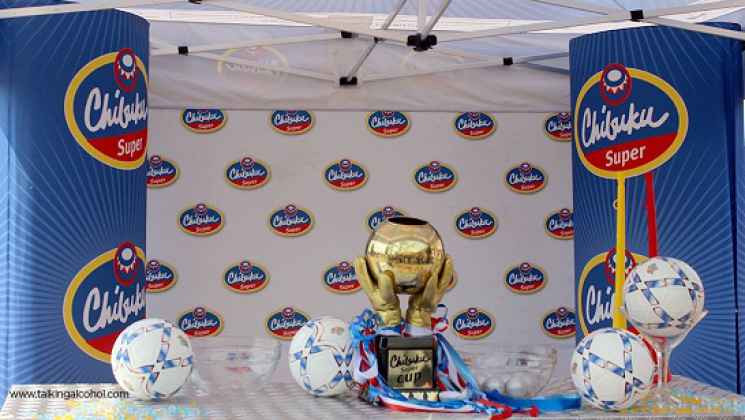
CONGRATULATIONS to those who managed to make it into the Zimbabwean cabinet that was recently put together by President Emmerson Mnangagwa to steer the country forward following his triumph in the just held elections.
Most of newly appointed ministers and their deputies have already hit the ground running as evidenced by recent media reports indicating that this time it could be a 'different kettle of fish' as lexicologists might deem to describe.
More on that in the forthcoming episodes when Yours Truly dissects the tourism industry which is set for interesting times just like any other government department as new players have been ushered with legendary new brooms.
Talking of players, Yours Truly is excited that for the umpteenth time, Chibuku Super Cup continues to be a source of entertainment to various soccer lovers across the country.
To the uninitiated, Chibuku Super Cup is a lucrative Zimbabwe soccer tournament involving 16 teams in the country's premier league whose mouth-watering prize money is a must win for any particular team in the competition.
Chibuku is a brand of opaque traditional beer whose modern brewing process involves blending of sorghum, malt and meal, barley malt and straight run maize among other ingredients followed by subsequent fermentation in producing the beverage.
A lot has been said and written concerning this form of beer, which has gained popularity within Southern Africa countries. It has all sorts of monikers such as umqombothi, sigodokaya, chikwakudhi, bukande, busukwa among other awakward names.
How the sobriquet ‘Chibuku beer’ did come into being?
- Chicken Inn knockout Harare City
- Ngezi stunned by 10-man Herentals in Chibuku Cup
- Inside sport: Make domestic football better
- FC Platinum reach Chibuku Cup last eight
Keep Reading
It was in the early 1960s when a German national and entreprenuer by the name of Max Heinrich, who was based in Kitwe, Zambia decided to commercialise the traditional African beer that was then the most sought after opaque beverage.
He sought assistance from local women on how to brew this type of beer and later processed it on an industrial scale using modern technology and fermenting equipment much to the enjoyment of Kitwe residents.
Due to increased high demand of the 'new' beer, Heinrich then made an arrangement with mine township owners to establish taverns where it (beer) was to be delivered in huge tankers and then dispensed in buckets.
He also observed that beer business was usually above average during paydays and convinced then township managers to come up with a system where mine employees would write their names and mine numbers in a big ledger book where particular employers deduct from workers salary.
One would regularly come across or hear a miner say, "Mpeni ko ubwalwa mulembe Mu chu buku" (Please may I have a carton and write in the big book).
Hence this gave rise to the beer being called 'ubwalwa chi buku' and resulted in Heinrich and his fellow workers calling it Chi buku (Big book). His company then called Heinrich Syndicate grew in leaps and bounds covering neighbouring Zimbabwe. It was later bought by Anglo-American thus spreading its tentacles to countries in East and West Africa.
And it is up to this day where this tasty liquid refreshment continues to play a major role in rural communal events as well as various social events and gatherings such as weddings among others.
The ultra-popular beverage contained some form of sediment which usually settle at the bottom of the glass hence the need to regularly shake it. For that reason, the then official advice was to shake it a bit as a practical way to continuously enjoys it.
For that reason, that is how the name Sheki Sheki came into being. It was later remodelled to Shake Shake which is still in use even to this day.
However, Yours Truly is yet decipher if there is any direct linkage or relationship with any form of opaque beer such Ingwebu found in Bulawayo, Go Beer (Gweru), Rufaro (Harare), Ndege (Zvishavane) and the list is endless.
Yours Truly was also of the opinion that Chibuku originated from Zimbabwe!!
Till we meet again in the next column.
- Comments always welcome on:[email protected] or X(formerly Twitter)@DubeBurzil






